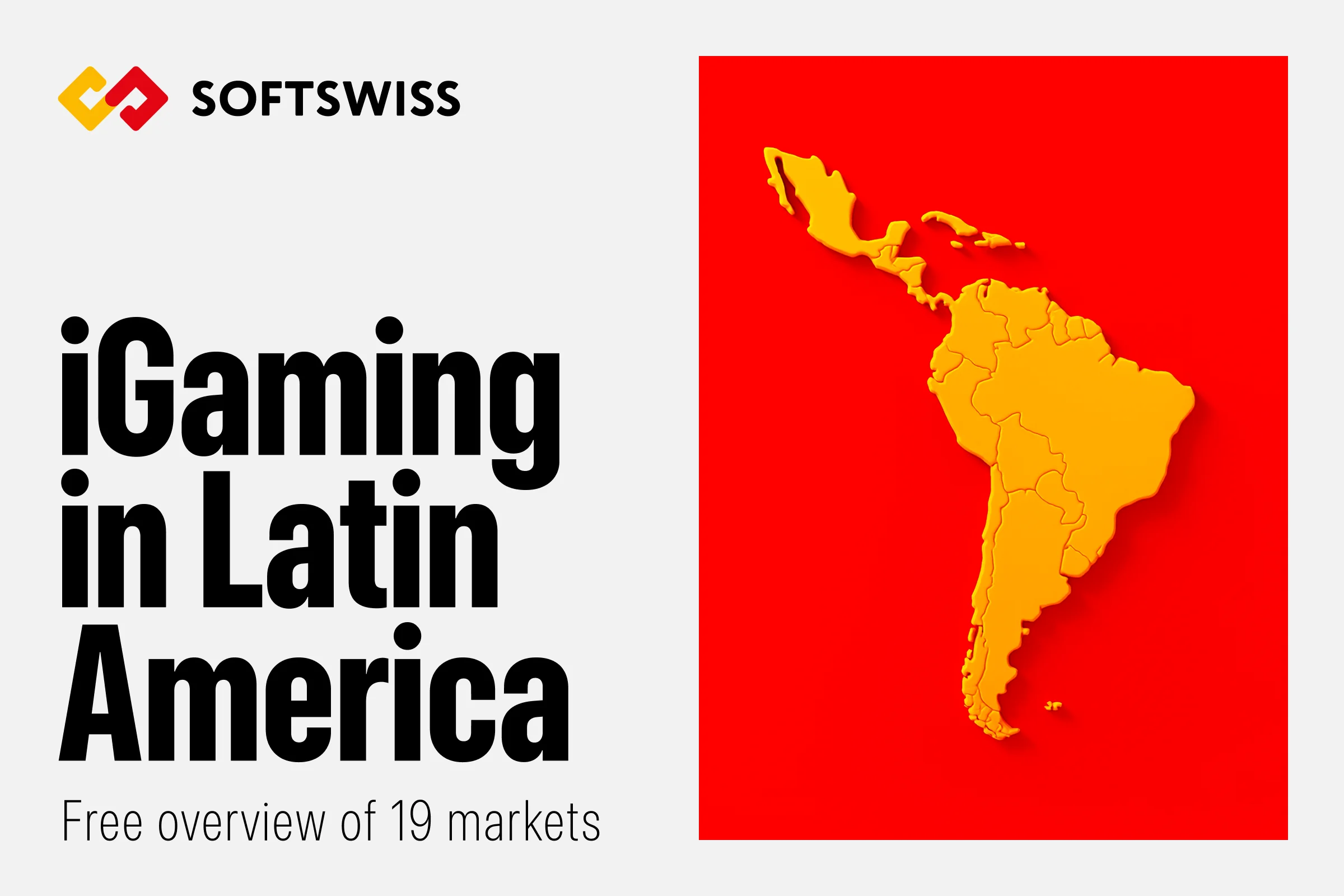The African online gambling market has witnessed a remarkable transformation in recent years, evolving from a nascent industry into a thriving and dynamic ecosystem. As the digital age sweeps across the continent, more and more Africans are turning to online platforms for their gaming and betting entertainment. We will unveil all the secrets of the African online gambling market, shedding light on its evolution, current state, and future prospects.
Africa’s online gambling sector holds significant global relevance, not only as a burgeoning market but also as a case study of how technological advancements and changing demographics are reshaping the world of gaming and betting. With a diverse range of cultures, languages, and regulatory environments, Africa presents a unique and complex playing field for online gambling operators and investors.
The primary objective of this article is to provide a comprehensive overview of the African online gambling market. We will explore its historical roots, the factors driving its growth, the segmentation of the market, the competitive field, and the regulatory framework that governs it.
Historical Context
Evolution of Gambling in Africa
Gambling has deep historical roots in Africa, with indigenous forms of wagering and chance-based games being integral parts of traditional African societies. These games functioned as platforms for cultural expression and social interaction in addition to being sources of enjoyment. Examples of such native gambling include dice games, board games, and raffles, each of which has a unique cultural meaning within diverse African communities.
Emergence of Online Gambling
The onset of online gambling in Africa is closely tied to the rapid adoption of the internet across the continent. As internet connectivity became more accessible, Africans began to explore new possibilities of gambling.
- Early Internet Adoption
In the late 20th century and early 21st century, the proliferation of internet infrastructure allowed Africans to venture into online gambling. Initially, online platforms primarily offered sports betting and casino games. These platforms provided a fresh way for people to engage with their favorite games of chance without the need for physical proximity to a casino or betting shop.
- Technological Advancements
One of the pivotal moments in the growth of online gambling was the widespread adoption of mobile technology, particularly smartphones. Mobile apps and optimized websites made it more convenient than ever to participate in online gambling, allowing individuals to place bets or play casino games from the comfort of their homes or while on the move.

Regulatory Developments and Milestones
- Diverse Regulatory Landscape
African nations have a broad range of gambling regulatory systems, from liberal and friendly to stringent and prohibitive. Different levels of business expansion and consumer access to online gambling services have resulted from this continent’s diversity of rules.
- Key Regulatory Milestones
Certain African countries have taken significant strides in regulating the industry. Notable milestones include the establishment of licensing authorities, the introduction of responsible gambling measures, and the recognition of online gambling as a legitimate and taxable sector of the economy.
Market Size and Growth
The African online gambling market has grown significantly in size and economic value, making it a formidable player on the global stage. Key factors contributing to its expansion include:
- Increasing Internet Penetration
- Mobile Technology Advancements
- Expanding Middle Class
- Regulatory Changes
About 11.5% of all internet users worldwide are from Africa, and many of them use websites that provide betting and gaming. The sector has experienced remarkable growth across the continent since 2020, elevating Africa’s status as a pivotal jurisdiction for the future expansion and advancement of this industry. So, how much is the gambling industry in Africa worth? By the conclusion of 2022, the African online gambling market had already reached a substantial value of around $2.2 billion, and this figure is poised for further escalation by the year’s end.
According to Statista Market Insights there is promising growth in online gambling. In 2023, it is expected that the online gambling sector will generate US$1.63 billion in revenue. Market volume is anticipated to reach US$2.26 billion by 2027, with revenue predicted to rise at an average yearly rate of 8.51% (CAGR 2023–2027).

But what fuels this growth the most? There are two main aspects, which you should take into account:
- There is a gradual reduction in poverty levels, albeit at a slow pace. This translates into an increasing number of individuals ascending into the middle class, enjoying disposable incomes that they can allocate towards betting and gambling activities.
- Ongoing digital transformation. Today more and more people own smartphones and gaining access to the internet. Presently, 64% of the population possesses smartphones, a figure projected to climb to 70% by 2025. In terms of internet accessibility, nearly half of these smartphone users now enjoy consistent access to the web. This accessibility is further facilitated by the emergence of online payment solutions tailored for Africans, bypassing traditional banking institutions and streamlining swift, cost-effective online transactions.
Online Gambling Market Segmentation Insights in Africa
Nigeria and South Africa are the continent’s two largest marketplaces. Due in part to the fact that South Africa has the greatest GDP on the continent, which significantly increases people’s spending power, it is predicted that the country’s online and offline sectors will top $2.3 billion by 2023. In actuality, South Africa accounts for 50% of all gambling income in Africa, with 24% of it coming from the sports betting industry. A majority of South Africans, or around half of the population, wager on sports, especially rugby, horse racing, football, and cricket. According to experts, it is expected to quadruple over the next five years, so you should absolutely keep the area in mind.
Nigeria, with a population of 200 million, is another important region. Its economy is expanding, and the internet gaming industry has a promising future there. It generated around 7% of Africa’s gaming income in 2022, and almost 30% of the population, or about 65 million individuals, claim to be daily gamblers. There may be a sizable untapped market because not all of these people wager online. The most popular sports to wager on are English and European football, with the Spanish La Liga finishing in third.

Last but not least is Kenya, where internet gambling has been lawfully permitted since 2019. With up to $300 million in gaming income annually, it is a dominant market in the area. Sports betting in particular is growing as a result of more people owning smartphones and new mobile payment options. Approximately 7 million Kenyan citizens are now enrolled on at least one betting website; however, they also like playing poker, roulette, and slots.
Regulatory Framework of Online Gambling in Africa
The regulatory environment in Africa is complicated. While some African countries embrace open gambling environments with established legal frameworks, others maintain more conservative stances, characterized by stringent regulations and restrictions.
- Kenya. In Kenya, which boasts one of Africa’s thriving betting markets, an ongoing struggle between government authorities and betting operators revolves around taxation and regulatory matters. Nevertheless, Kenya’s Betting, Lotteries, and Gaming Act serves as the foundation for industry operations, with ongoing efforts to adapt legislation to evolving needs.
- South Africa. In South Africa, recognized for its progressive outlook, gambling has been regulated since 1996 through the National Gambling Act. This comprehensive legislation provides a well-organized system for licensing, monitoring, and ensuring responsible gambling practices.
- Nigeria. Nigeria’s National Lottery Regulatory Commission oversees its gambling sector in accordance with the National Lottery Act of 2005. The country is gradually moving toward more liberal regulatory approaches, capitalizing on its industry’s potential.
- Uganda. Conversely, Uganda presents a more conservative landscape, with the government implementing a blanket ban on sports gambling in 2019, citing adverse social impacts as the rationale behind the decision.
Issues That Exist in the Regulation of Africa`s Online Gambling
As the online gambling industry continues its expansion in Africa, there is a growing concern about the necessity for regulatory measures to safeguard players. A recent study conducted by the British Academy and Global Challenges Research Fund has revealed that governments in the region are struggling to keep pace with the rapid growth of this sector, driven by increased connectivity and smartphone accessibility. Researchers found that out of the 41 countries where gambling is legal, only two had published reports addressing its impact.

This study has raised alarm bells, highlighting a lack of awareness among governments regarding the potential harms and protective measures required for players in this expanding market. The researchers argue that as the sector continues its expansion, it is crucial to establish and update regulations to foster ethical and sustainable growth. Another pressing concern in the region is the proliferation of unregulated gambling advertising, especially in channels accessible to young people.
The study has also pointed out troubling statistics, such as the fact that 10% of Ethiopian youth exhibit compulsive gambling behavior, and over 90% of Ugandan teenagers have faced at least one gambling-related problem. Moreover, the absence of effective supervision, monitoring, and data analysis in African nations hampers the availability of reliable statistics.
All of this makes it quite tricky for players, regulators, and operators to figure out the best way to handle the growth of online gambling. According to the study’s researchers, having robust policymaking is super important to prevent further harm to youth and adults all over the continent.
Conclusion
In summary, historically, gambling has deep cultural roots in Africa. Today its online gambling market has undergone significant growth, driven by increased internet access and smartphone adoption. However, a diverse regulatory landscape and emerging challenges demand attention.
Regulation varies across the continent, from progressive frameworks in South Africa to ongoing struggles with taxation in Kenya. Despite this chaos, the industry’s growth is fueled by rising incomes among Africans and digital transformation.
Yet, concerns arise as governments struggle to keep pace with the sector’s expansion. Compulsive gambling among youth and unregulated advertising are worrisome trends.
To ensure ethical and sustainable development, robust policymaking is essential. Africa must strike a balance between fostering a thriving industry and protecting consumers, shaping a safer and more prosperous future for online gambling.












